Samayik Sadhna - Necessity For A Balanced Life
19.08.2009 - The Third Day of Paryushan-2009 in the sequence of Ashtahnik Upasadiksha (eightfold initiation) was observed as the “Samayik Diwas”. Samayik is said to be an act of purifying one’s soul with the help of meditation & prayer from the bondage of karmas caused by our actions. Samayik means to be in and around the soul or self through meditation. This is the state of complete thoughtfulness by knowing ones self for a muhurat (48 minutes) by staying away from all sinful act, be it by body, speech or thoughts.
Sadhvi Kanak shri ji, learned disciple of Yugpradhan Acharya Shri Mahapragyaji in the series of Paryushan discourses said - “the first and the last step of the Jain Religion is equality”. The practice of observing equality is Samayik. Samayik is the observance of self - inspection, self - cleansing and self - merriment. A forty-eight minute practice of mental, verbal and physical resistance is observed to help lead a life of non - violence. It promotes a system of a living a balanced life.
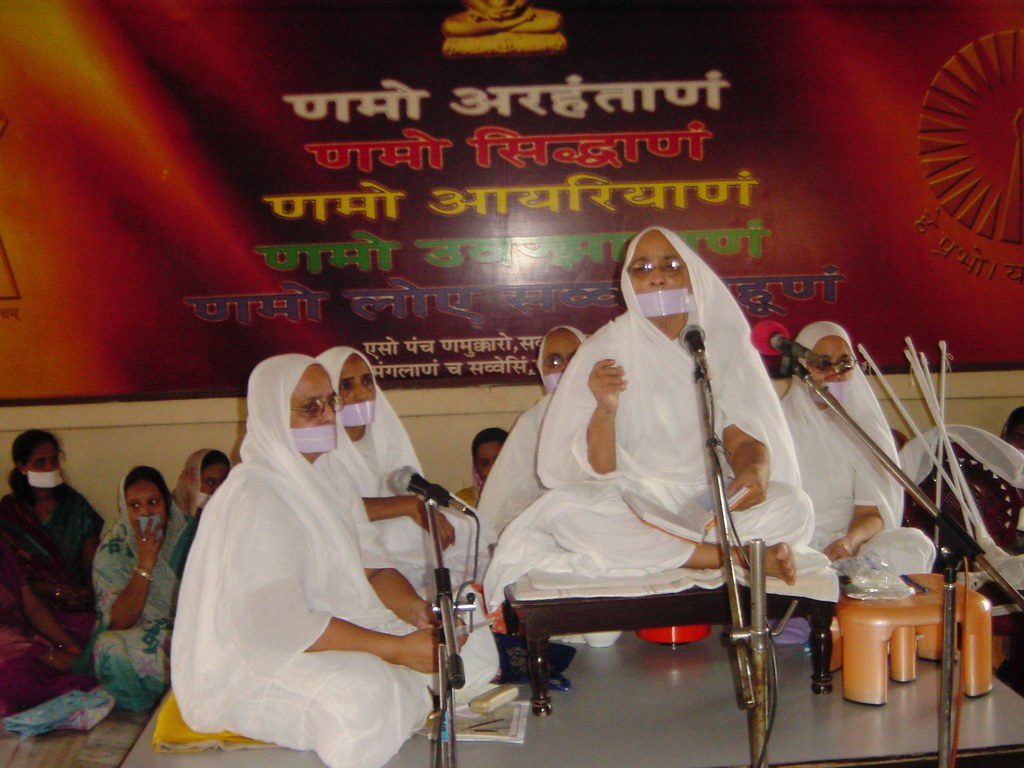 Sadhvi Kanak Shri addressing the lay followers-view 2
Sadhvi Kanak Shri addressing the lay followers-view 2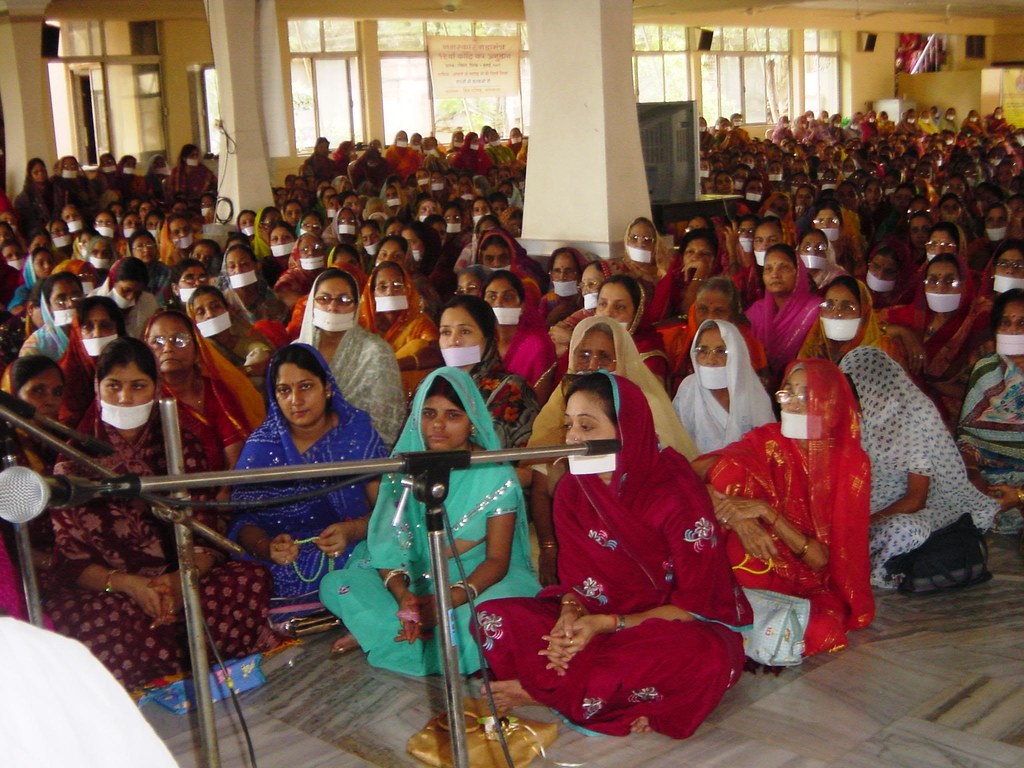 ladies lay followers- view 2
ladies lay followers- view 2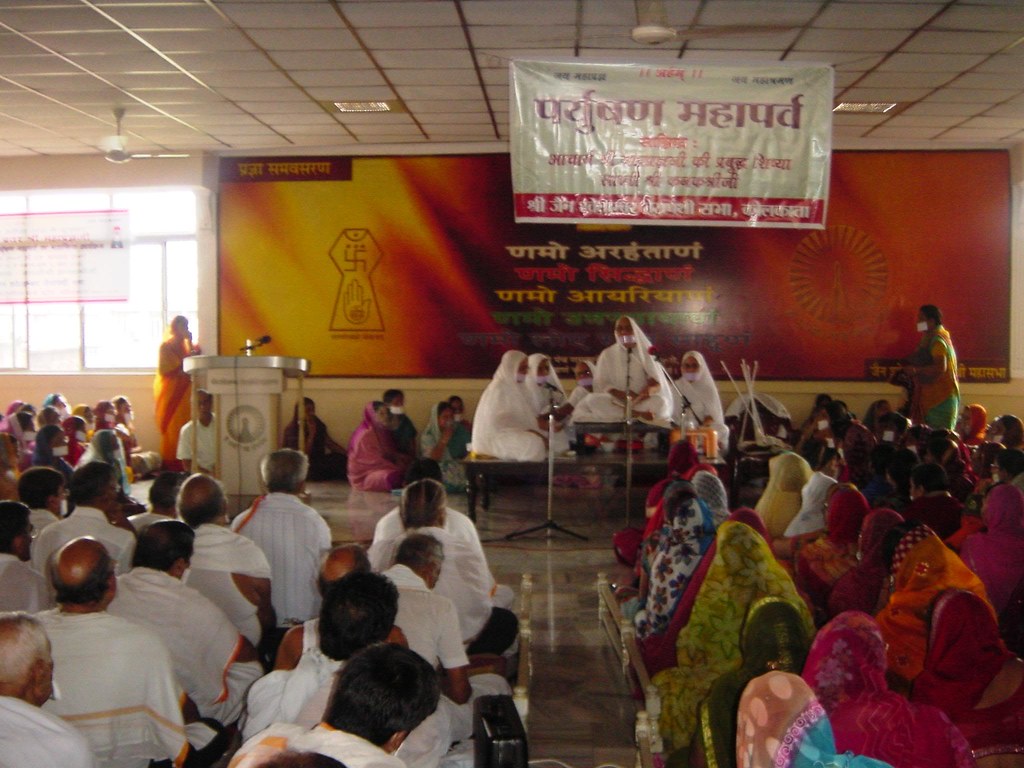 Sadhvi Kanak Shri and the lay followers
Sadhvi Kanak Shri and the lay followers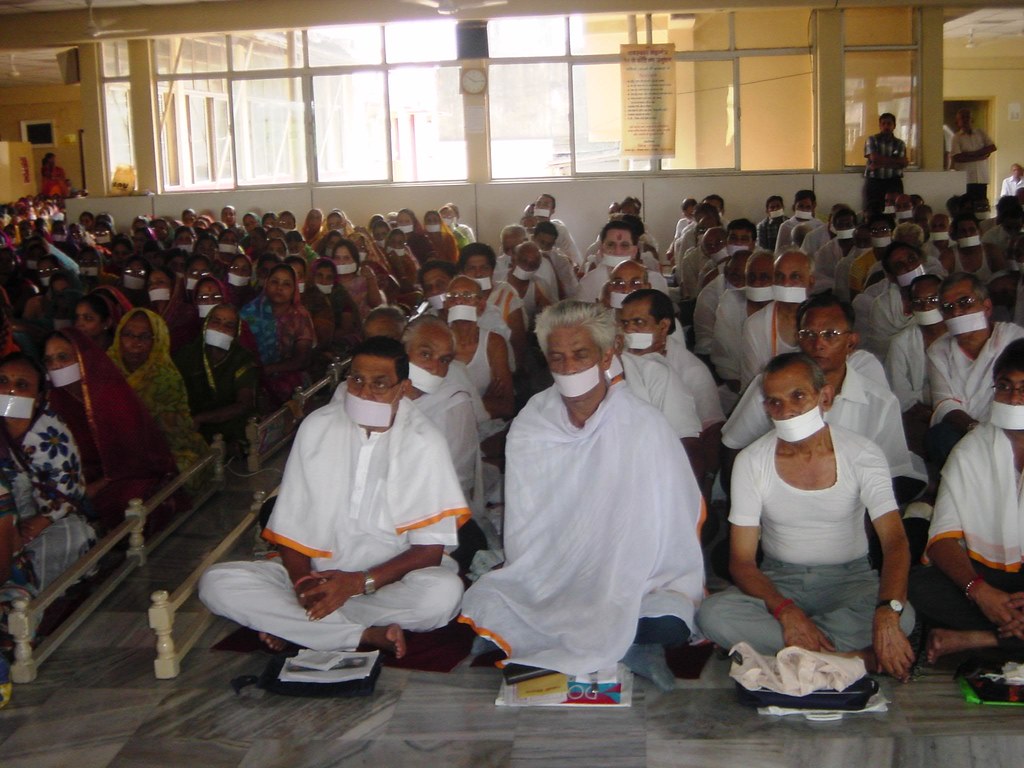 lay followers- view 1
lay followers- view 1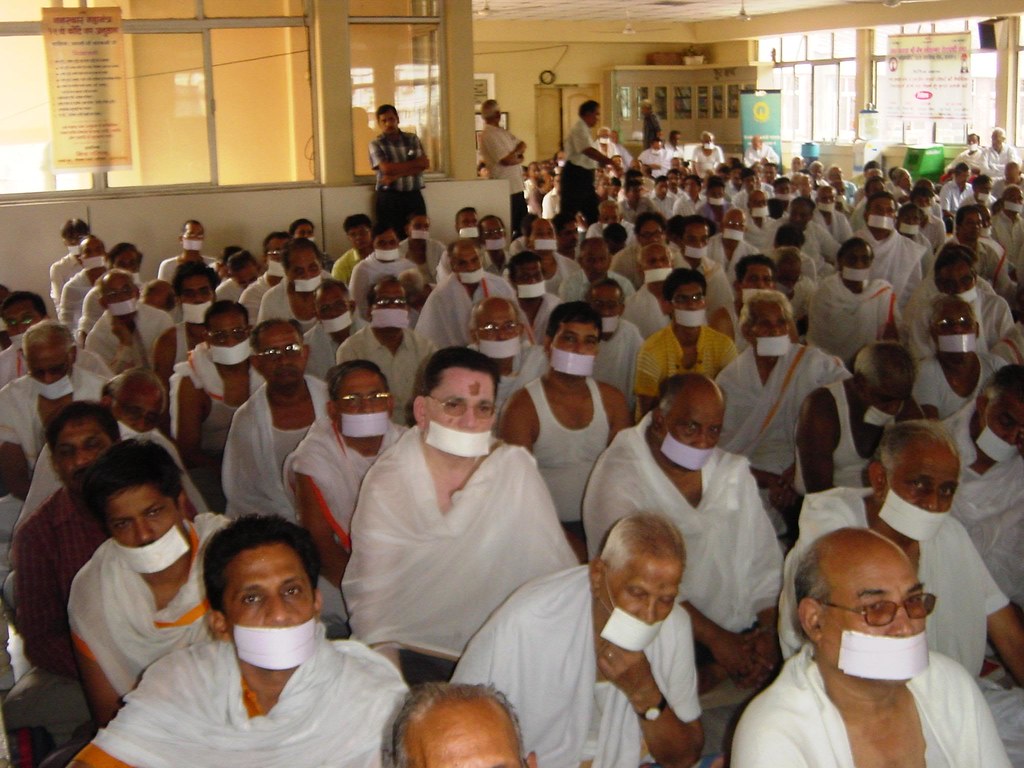 lay followers- view 2
lay followers- view 2
The Paryushan Festival was organized at the Pragya Samvasaran of the Mahasabha Bhawan by the Terapanthi Sabha, Kolkata. Addressing the gathering of the devotees Sadhvishri Kanakshriji further said, “in this era of worldly tensions and competition Samayik Sadhna is of prime necessity. Scientific results have also proved that for a healthy and a long life religious homage is of utmost importance”.
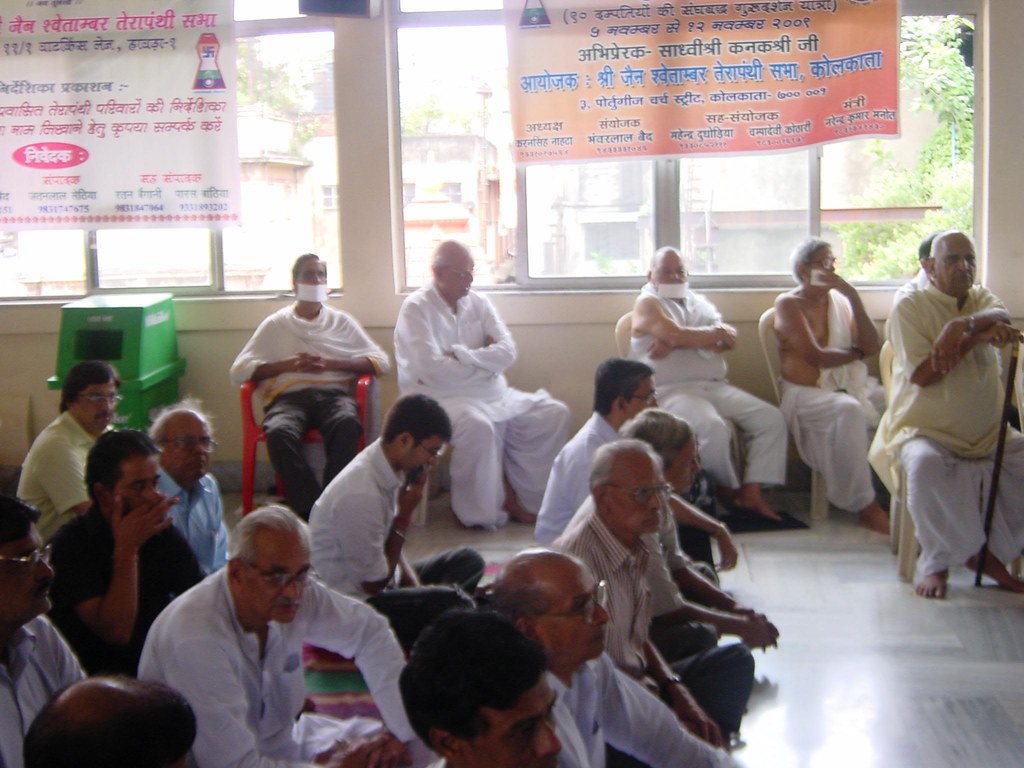 lay followers- view 7
lay followers- view 7
Discussing the ascent and descent in the life cycle of Lord Mahavira, Sadhvishri said, “simplicity, delicacy and sensitivity enlighten equality in one’s soul”. Whenever anger, deceit, conceit and greed empowers, equality fades out. The conscious ground shakes. Enchanting the devotees present, Sadhvishri explained the historical context of how Lord Mahavira completed the journey from anger/pride to Arham.
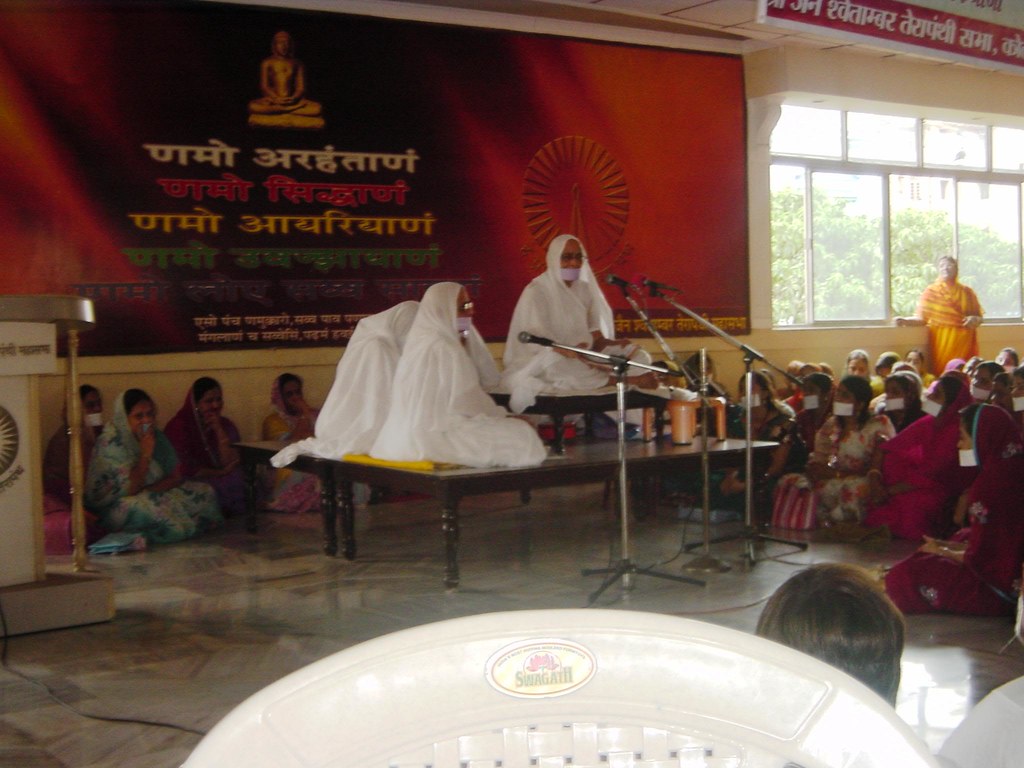 Sadhvi sri enlightening Participants in musical house programme -view 1
Sadhvi sri enlightening Participants in musical house programme -view 1
Sadhvi Madhulata ji, in her effective presentation on the Samayik process said, “a jain devotee when observes Samayik, he practices sadhana of sainthood. From the view point of Sadhana what matters is quality and not quantity. Samayik should be such that our daily behavior reflects equanimity”.
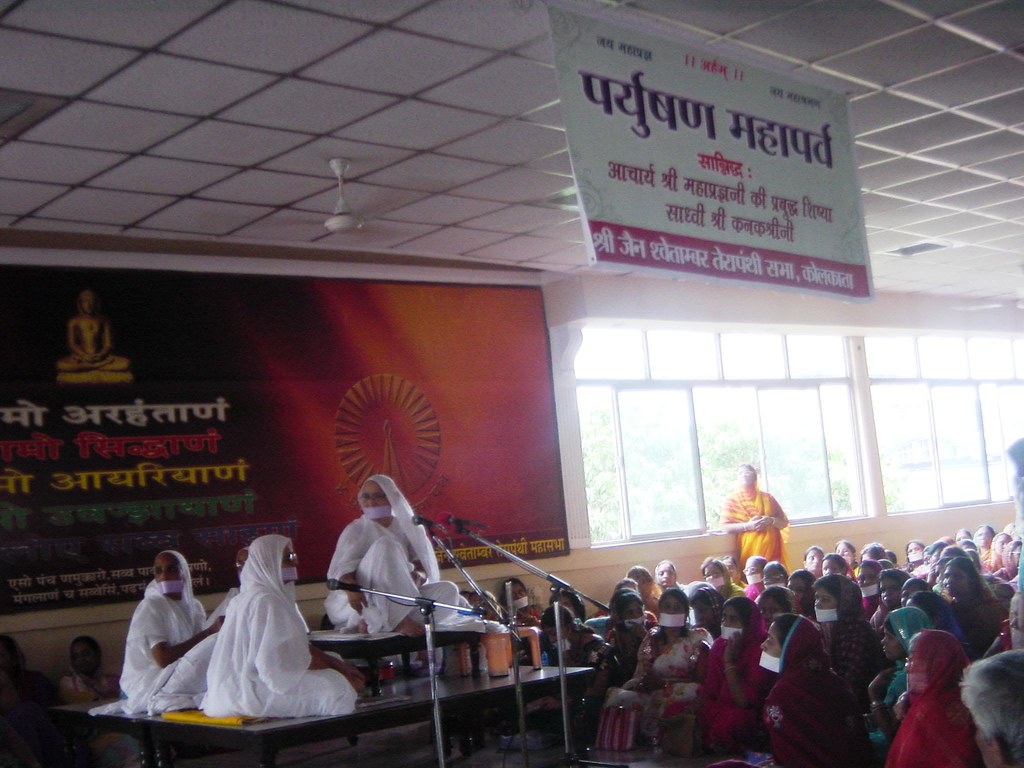 Sadhvi sri enlightening Participants in musical house programme -view 3
Sadhvi sri enlightening Participants in musical house programme -view 3
The programme began with a group song on Samayik by members of Arham Mandal, a singers group. Sri Bhanwarlal Singhi spoke on the occasion about the words quoted by his holiness Acharya Sri Mahaprajnaji about the Learned devout Sadhvi Kanak Shri and her group. Sri Singhi also gave useful information about the events going on at Ladnun and forthcoming programme at Kolkata during Paryushan 2009. The programme was ably compered by Sadhvi Madhulata ji
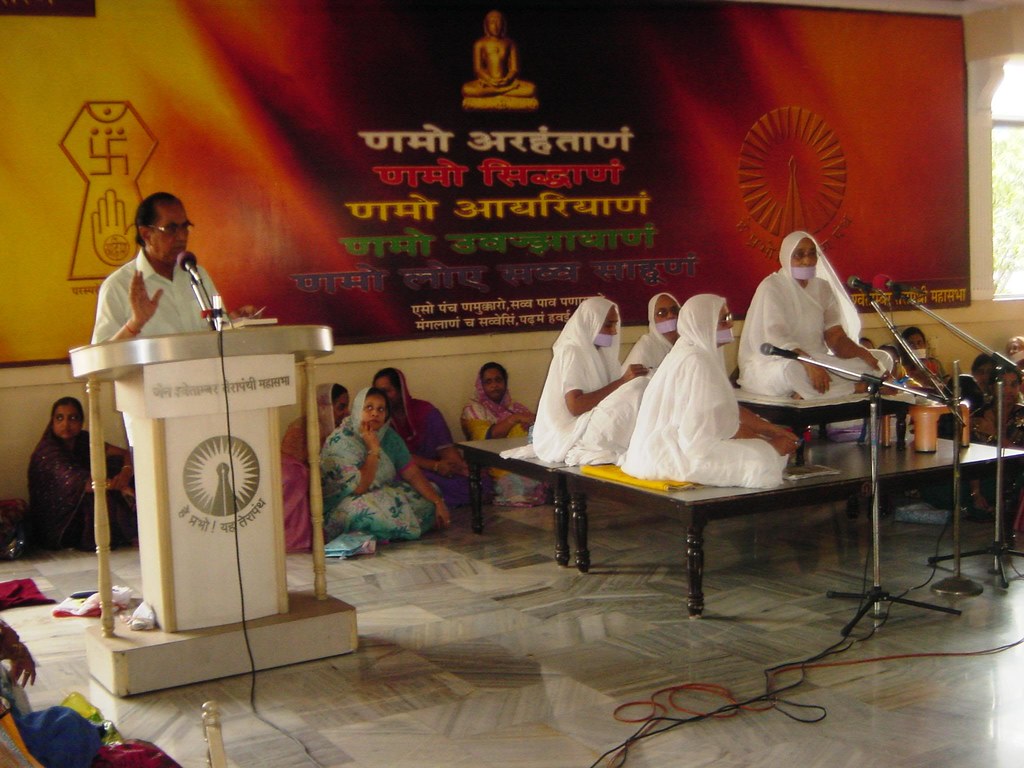 musical house programme -view 2
musical house programme -view 2
In the evening the collective pratikramana was practiced by over 500 lay followers, and there after Arhat Vandana was joined by lay followers. After that a quiz group competition based on religious and behavioral questions was organized by TEYUP, Kolkata.The winners group were given mementoes.